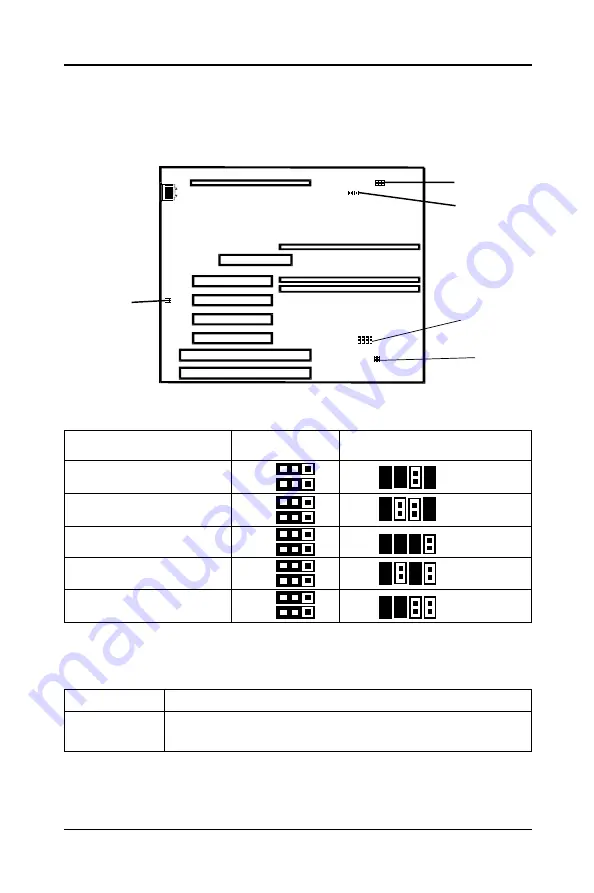
6
Technical Reference Booklet
Jumper Settings
This chapter explains how to configure the motherboard’s hardware. Before
using your computer, make sure all jumpers and DRAM modules are set
correctly. Refer to this chapter whenever in doubt.
JP5, JP6, JP7 - CPU Type Selection
CPU Type and Speed
JP5
JP7
JP6
Pentium II - 200MHz
Pentium II - 233MHz
Pentium II - 266MHz
Pentium II - 300MHz
Pentium II - 333MHz
JP2 - AUTO CPU Core-Voltage Selection (All open)
JP4 - CMOS Clear
JP4
Selection
2-3
CMOS Clear
1-2
Normal (default)
JP8, JP15 - PNP BIOS Program Voltage
JP8&JP15 are pre-installed in the factory. They should NOT be altered by
the users.
JP15
JP8
JP12
JP4
JP2
JP7
JP5
JP6
1
1
1
1
1
1
1
1
1
1
1
2
1
2
1
2
1
2
1
2
































